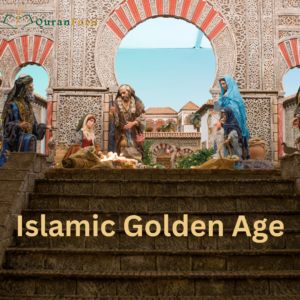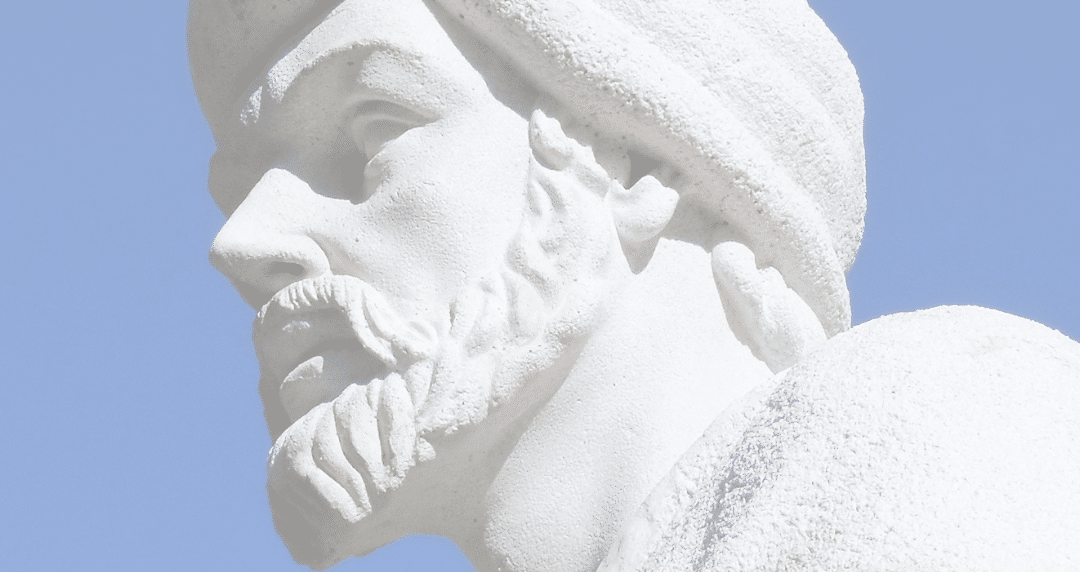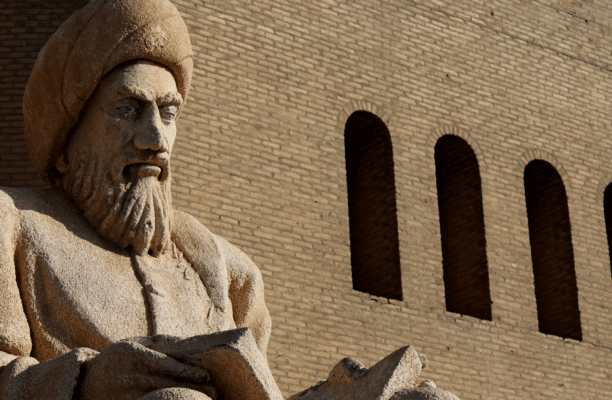Ibn Rushd: The Philosopher of Andalusia
Ibn Rushd, also known as Averroes, was a significant figure in the Islamic Golden Age. He excelled in various fields, including philosophy, medicine, law, and theology, and his contributions had a lasting impact on both the Islamic and Western worlds.

Early Life and Education
Ibn Rushd was born in Cordoba, Spain, in 1126 CE. During this time, Islamic Spain was a center of learning. His family were scholars, and they provided him with a classical Islamic education. He studied law, theology, and medicine before turning to philosophy. His education in these fields gave him a broad knowledge base that he would later use to integrate different fields of knowledge.
Contributions to Philosophy
Ibn Rushd is best known for his contributions to philosophy. He read the works of Aristotle, which he studied extensively. Ibn Rushd wrote extensively on Aristotelian philosophy and tried to combine it with Islamic theology.
One of Ibn Rushd’s most famous works is his commentaries on Aristotle’s works. His commentaries were widely read and translated into Latin. They helped bridge the gap between Greek philosophy and medieval Christian thought. However, some Islamic theologians disagreed with his attempts to reconcile Aristotelian philosophy with Islamic theology. Some of his works were banned and burned in some parts of the Islamic world.
Despite the opposition, Ibn Rushd continued to produce groundbreaking works on philosophy. He proposed a unique interpretation of Aristotelian philosophy that emphasized the unity of knowledge. In his view, all forms of knowledge were interconnected and could be integrated into a coherent whole. This approach would later influence European thinkers during the Renaissance and Enlightenment.
Contributions to Medicine
In addition to philosophy, Ibn Rushd made significant contributions to medicine. He served as a physician to the Almohad caliphs and wrote on a variety of medical topics. Ibn Rushd is credited with advancing medical knowledge in the Islamic world.
One of Ibn Rushd‘s most famous medical works is the Kitab al-Kulliyat fi al-Tibb (General Book on Medicine). This work covers a wide range of medical topics and includes discussions on anatomy, physiology, and pathology. Ibn Rushd’s contributions to medicine were not limited to his writings. He also developed several new medical treatments and was a practicing physician. His ideas on medicine were studied by scholars for centuries after his death.
Contributions to Law and Theology
In addition to philosophy and medicine, Ibn Rushd made contributions to Islamic law and theology. He served as a judge in Cordoba and wrote extensively on Islamic law.
One of Ibn Rushd’s most famous legal works is the Bidayat al-Mujtahid wa Nihayat al-Muqtasid (The Distinguished Jurist’s Primer). This work is a commentary on Islamic law and covers a wide range of legal topics. Ibn Rushd also wrote on Islamic theology, and his works on theology were influential in the development of Islamic thought. His ideas on theology were not always accepted by his contemporaries, but his works continue to be studied and admired by scholars today.
Legacy
Ibn Rushd’s ideas were influential not only in the Islamic world but also in the Western world. His works on philosophy helped bridge the gap between Greek philosophy and medieval Christian thought, and his ideas on medicine and law had a lasting impact on the world.
Despite opposition to his ideas during his lifetime, scholars continued to study Ibn Rushd’s works for centuries after his death. His legacy serves as a reminder of the importance of intellectual curiosity, interdisciplinary studies, and the pursuit of knowledge. Ibn Rushd’s contributions to various fields of knowledge highlight the importance of integrating different fields and the significance of an interdisciplinary approach.
In conclusion, Ibn Rushd was a brilliant philosopher, physician, and polymath whose contributions to philosophy, medicine, law, and theology had a lasting impact on the world. His efforts to reconcile Aristotelian philosophy with Islamic theology helped bridge the gap between Greek philosophy and Islamic thought, and his works continue to be studied and admired by scholars today. Ibn Rushd’s legacy is a reminder of the importance of intellectual curiosity, interdisciplinary studies, and the pursuit of knowledge.
In order to learn more about the Islamic Golden Age and the contributions of great thinkers like Ibn Rushd, we invite you to join our newsletter. By joining, you can stay up-to-date on the latest insights and discoveries in Islamic history and scholarship. This is an excellent opportunity to deepen your knowledge and appreciation of the rich cultural heritage of the Islamic world. Don’t miss out on the chance to learn more and expand your understanding of this important period in history.


